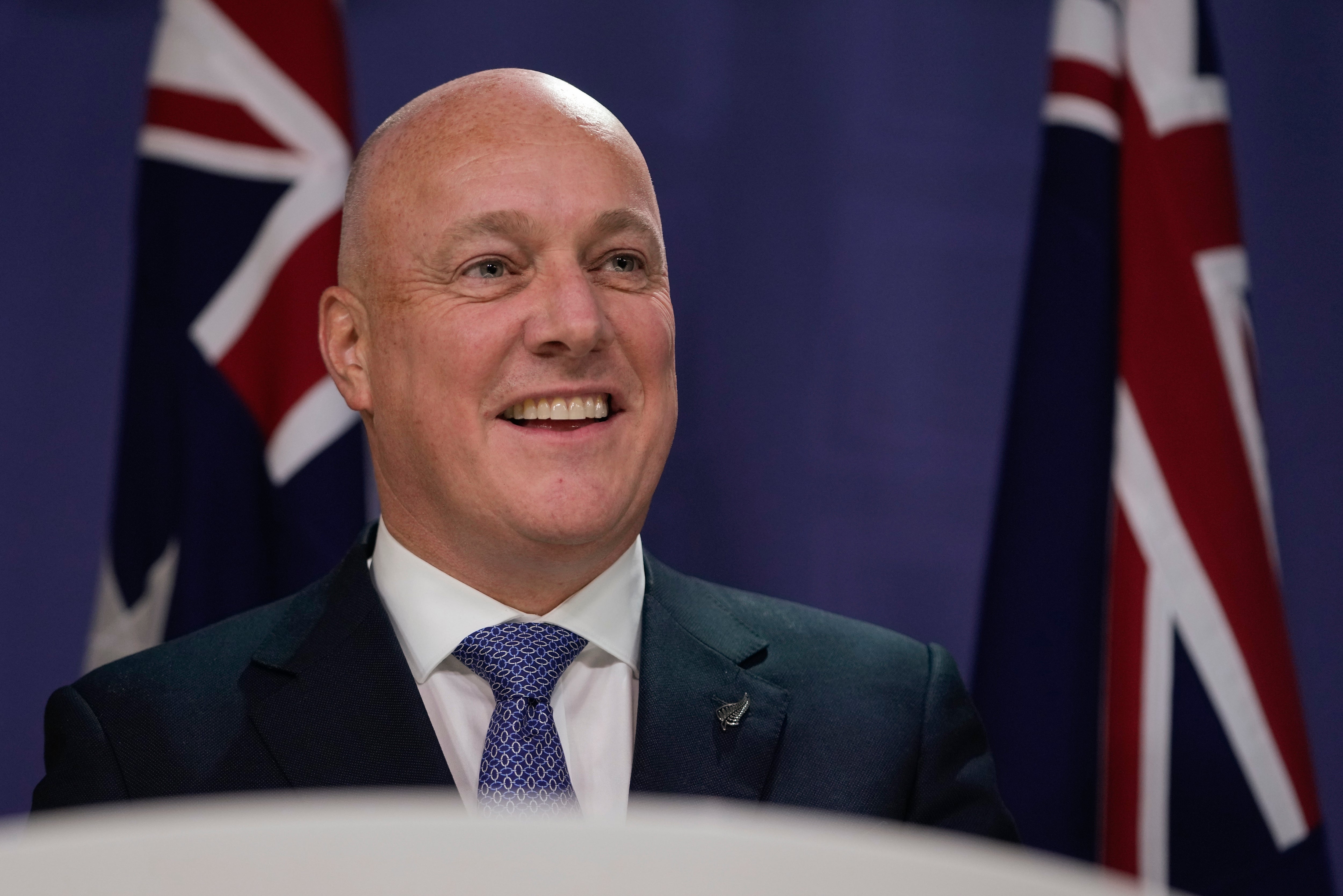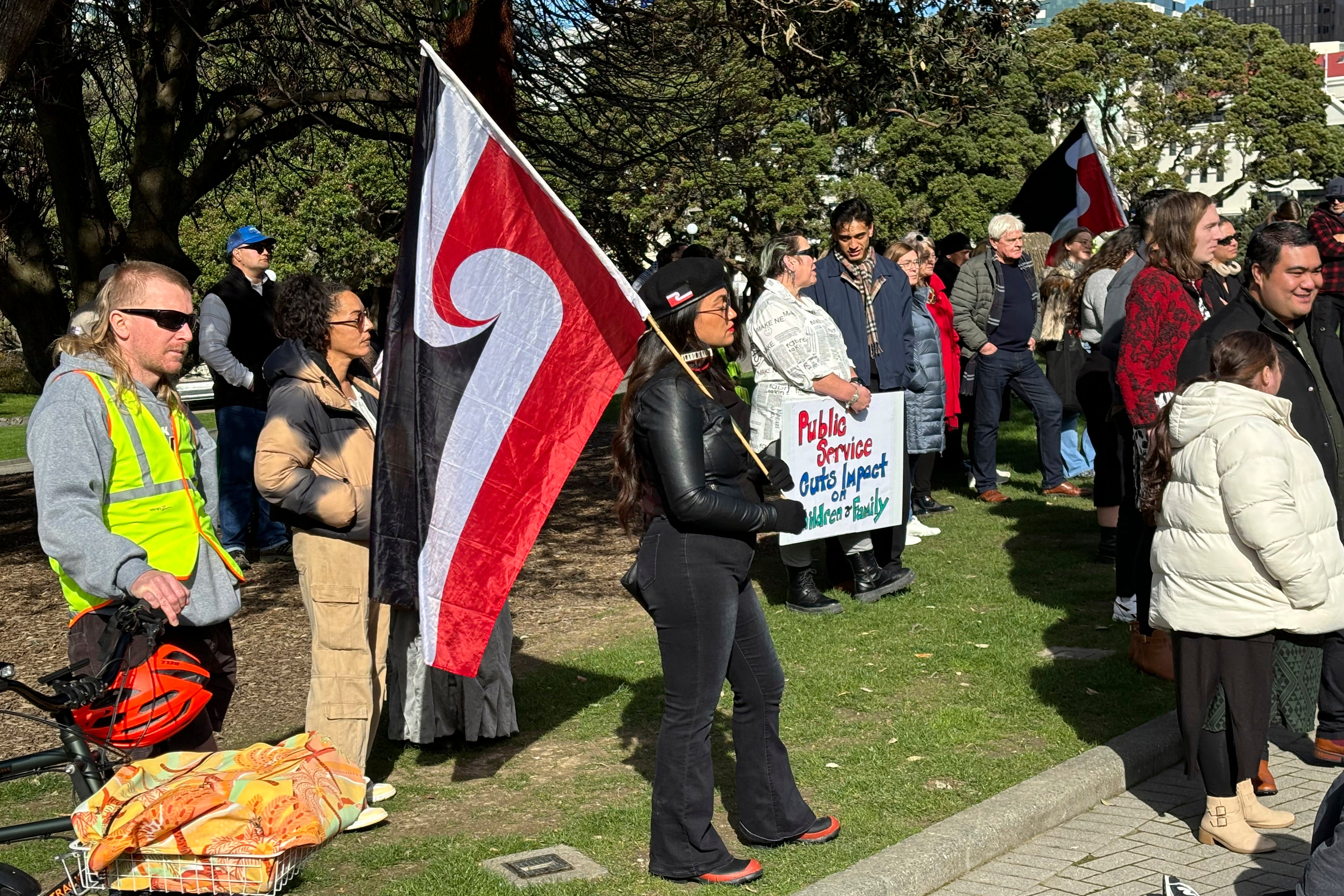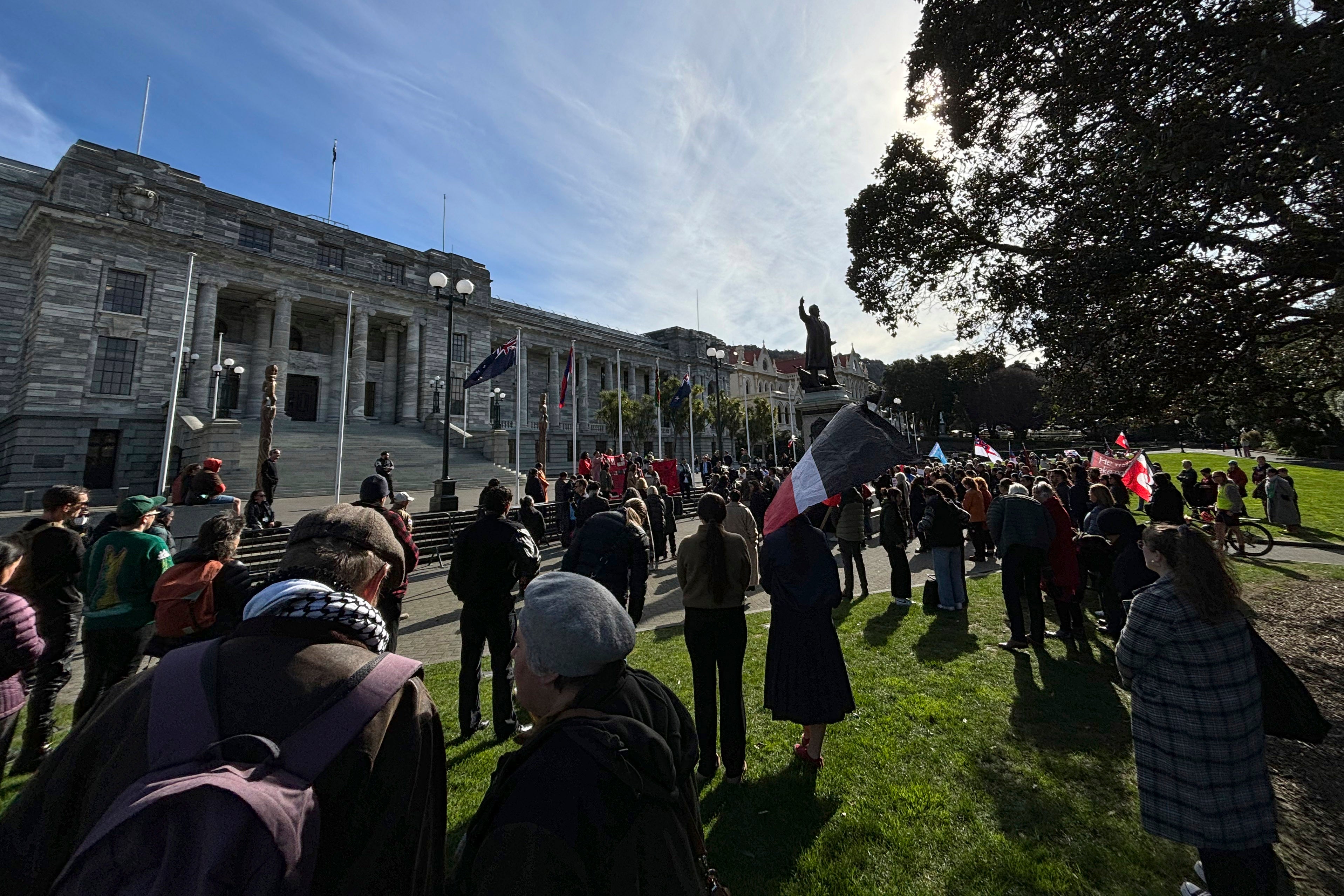New Zealand PM suggests Australians are stupid in long-running war of words
Australian Prime Minister responded with a favorite joke — that no one can understand the New Zealand accent

Your support helps us to tell the story
From reproductive rights to climate change to Big Tech, The Independent is on the ground when the story is developing. Whether it's investigating the financials of Elon Musk's pro-Trump PAC or producing our latest documentary, 'The A Word', which shines a light on the American women fighting for reproductive rights, we know how important it is to parse out the facts from the messaging.
At such a critical moment in US history, we need reporters on the ground. Your donation allows us to keep sending journalists to speak to both sides of the story.
The Independent is trusted by Americans across the entire political spectrum. And unlike many other quality news outlets, we choose not to lock Americans out of our reporting and analysis with paywalls. We believe quality journalism should be available to everyone, paid for by those who can afford it.
Your support makes all the difference.The removal of basic Māori phrases from an invitation to an Australian official was not a snub of the Indigenous language by New Zealand’s government, Prime Minister Christopher Luxon has said, instead joking that it actually reflected the “incredibly simple” language required when speaking to Australians.
The prime minister appeared to indulge in a favorite pastime of New Zealanders, who enjoy a friendly rivalry with their closest neighbor: calling Australians stupid.
The jibe from Luxon comes after the removal of the Māori words from an invitation sent to Australia’s arts minister.
It was an attempt to rebuff criticism that his government is anti-Māori, as it seeks to reverse policies favoring Indigenous people and language.“In my dealings with Australians, it always pays to be incredibly simple and clear and use English,” Luxon said, referring to the invitation sent to Tony Burke.
Ripostes between lawmakers across the Tasman have precedent. In the most famous example, a New Zealand leader, Rob Muldoon, quipped in the 1980s that New Zealanders who migrate to Australia “raise the IQ of both countries.”
On Thursday, a smiling Australian Prime Minister Anthony Albanese responded to Luxon with a favorite Australian joke — that no one can understand the New Zealand accent.

He said that at times interpreters were needed, perhaps diplomatically adding that he had sometimes “missed” things said by Luxon’s predecessors too.
“Look, we’re great friends and we’re great mates,” the Australian leader said. “Sometimes though we do speak a different language and that’s when we both think we’re speaking English.”
The exchange offered a diversion in an otherwise tense session of New Zealand’s Parliament, which has been roiled by accusations of bullying, racism and insults in recent weeks, with lawmakers in tears and the prime minister urging “all political leaders to watch their rhetoric.”
During Question Time, Luxon was asked by opposition leader Chris Hipkins about a series of inflammatory remarks he said lawmakers had recently made.
Among them was the report that New Zealand’s arts, culture and heritage minister, Paul Goldsmith — who signed off on the new year invitation — had directed officials to remove some Māori phrases from the materials, according to documents divulged by 1News.

They included “t*n* koe” — a formal way to say hello, learned by New Zealand children in their first year of elementary school — and “Aotearoa,” a commonplace Māori name for New Zealand.
A spokesperson for Burke, the Australian recipient of the controversial invitation, said on Thursday that he had known the meaning of the word Aotearoa since 1982, when it was referenced in the lyrics of a popular song by the New Zealand band Split Enz.
“I just didn’t think it needed a lot of te reo in it,” Goldsmith told 1News, using a phrase meaning the Māori language, an official one of New Zealand. The language was once close to dying out, but activists provoked a revival over several decades, and common Māori words or phrases are now in everyday use among all New Zealanders.
The same movement prompted a revival of Matariki, the Māori lunar new year, which was established as a nationwide public holiday in 2020.
Since assuming office after the 2023 election, Luxon’s coalition government has prompted fraught public debates about race. One was over a return to English names for government agencies, many of which had assumed Māori titles in recent years.
Another was over ending initiatives that offer priority to Māori, who lag behind other New Zealanders in most health, economic and justice statistics.
Protestors gathered outside Parliament in the capital, Wellington, this week to oppose the government’s plans to repeal a clause requiring recognition of children’s Māori heritage from the law governing the child protection system.
Join our commenting forum
Join thought-provoking conversations, follow other Independent readers and see their replies
Comments